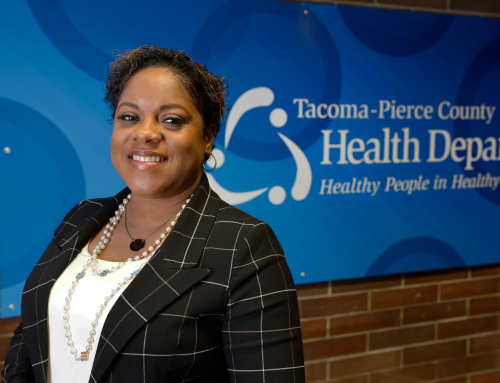
Vital records serve a huge role in making crucial health decisions and policies. These records contain birth and death certificates and hold data that provide insights into public health trends, life expectancy, and the development of effective health programs. Vital records provide a systemic approach to community by helping individuals at various stages of life.
Recognizing the importance of these records, the South Dakota Department of Health, Office of Vital Records and Office of Health Statistics has emerged as a leader by becoming the first accredited Vital Records/Health Statistics (VRHS) unit. This accreditation underscores the important role that health data play in fostering better community health.
The Public Health Accreditation Board (PHAB) developed the VRHS Accreditation Program in partnership with the Centers for Disease Control and Prevention’s National Center for Health Statistics (NCHS) and the National Association for Public Health Statistics and Information Systems (NAPHSIS). NAPHISIS worked closely with PHAB and CDC to develop and test the Standards and Measures. The program aims to establish and uphold elevated standards in VRHS offices to create a culture of continuous improvement.
Although standards have long existed in vital records, the “model law” was inconsistent, leaving a void in public health practice. Shae Sutton, PhD, Chief Program Officer at NAPHSIS noted that as a key pillar of public health, vital records deserved their own standards, tailored to their unique function.
“There was definitely a need to develop a program to help units meet national standards,” Sutton noted.
NAPHSIS joined forces with PHAB due to the organization’s experience and expertise in health department accreditation. PHAB and NAPHSIS make up a great team that provides technical assistance for those in the VRHS accreditation process or are considering.
“It’s been great for NAPHSIS to work with PHAB and complement activities for jurisdictions [that are] moving through the process,” said Sutton.
The South Dakota Department of Health, a state agency responsible for maintaining crucial health data, took the leap of accreditation because they believe in public health transformation.
Vital records often remain in the background of public health discussions, but its significance in the field should not go unnoticed. According to State Registrar Shawna Flax, these records form a fundamental element in understanding the broader scope of public health.
The records have tons of data, including death records, birth mortality records, and hospital births, which contribute to a deeper understanding of regional health challenges and their causes. By analyzing this information, for example, public health officials can pinpoint reasons for elevated mortality rates and implement preventive strategies to lower them.
“The data collected through vital records are the backbone to public health research,” said Shae Sutton, NAPHSIS.
For example, birth records support identification and help individuals receive benefits. Death records support families for insurance benefits, funeral fees, as well as bank account access. These official records support individuals in everyday life and protect them against fraud.
The VRHS accreditation program helps create a learning improvement culture within the organization and better document things a lot of departments are already doing. According to Sutton, it develops a quality improvement ‘loop’ by helping offices identify strategies to monitor and evaluate the effectiveness of services.
For the South Dakota Department of Health, obtaining accreditation was a must because as one of the smallest offices of its kind in the nation, with a staff of fewer than 10, the department wanted to stay updated on emerging practices and remain connected with larger entities.
“It has brought us more opportunities for improvement,” said Flax.
The department’s participation in the beta phase of accreditation from 2017-2018 laid the groundwork for a smoother transition into the official process. Yet, it still took some work to meet the rigorous standards set forth by PHAB’s VRHS Accreditation Program. In 2021, the South Dakota Department of Health received its VRHS accreditation, marking a pivotal milestone in the history of vital records and health statistics.
The South Dakota Department of Health has vital records dating back to July 1, 1905. Beyond serving as a registry of births and deaths, the department plays a role in releasing adoption papers and genealogical records for those individuals tracing their heritage. These archives also hold insights into pressing health issues, including overdose statistics.
“[Accreditation] really brought to our attention that we are more than the who, what, and when,” Flax said about vital records.
Through its pioneering VRHS accreditation, the South Dakota Department of Health is committed to continuing its role in the public health ecosystem.
“Everyone wants a healthy life…and we all play a part in it,” said Flax. “We’re all pieces of the puzzle.”
Vital Records/Health Statistics may operate in the background, but their role is indispensable. The VRHS accreditation program elevates these units and spotlights their invaluable contributions.
Though the accreditation program is still quite new, it has helped accredited units shape their laws and regulations, enhance documentation, and identify areas for improvement.
Sutton sums it up aptly: “It helps raise the profile of all VRHS units across the country.”





